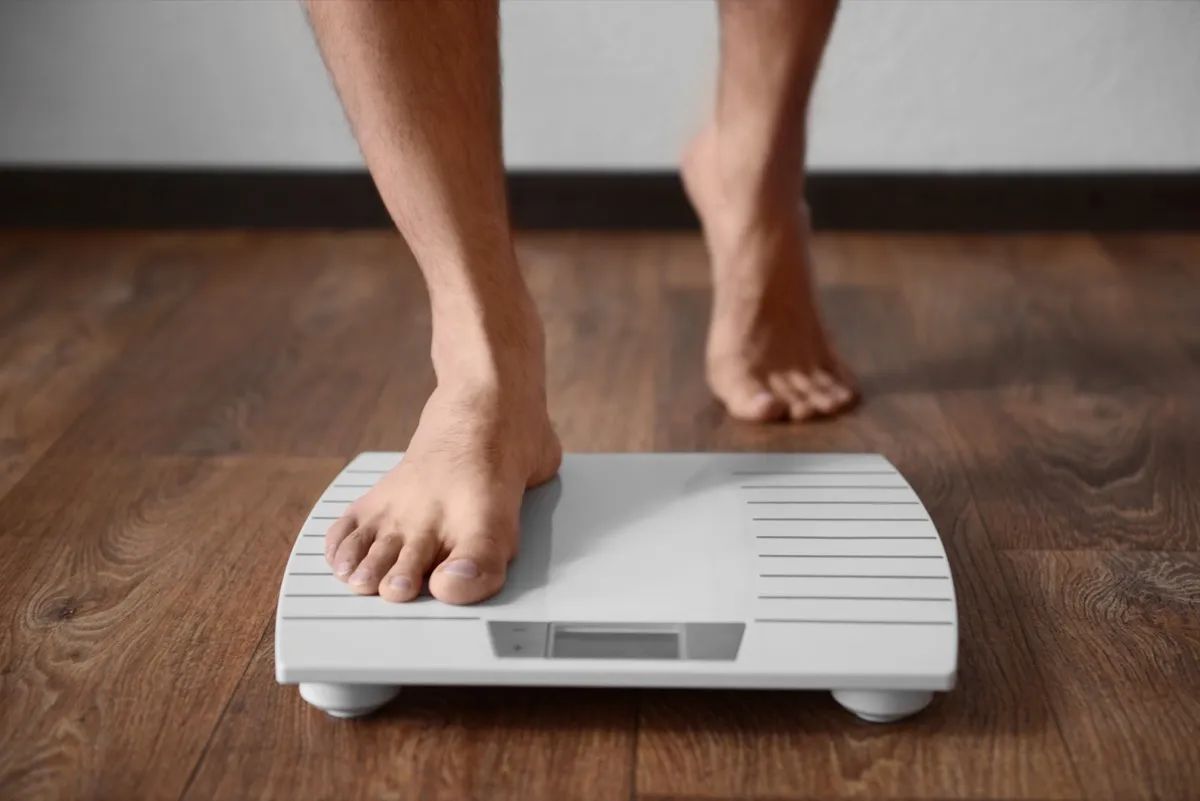“Good news is we caught it early. Not great news is that it’s a little aggressive,” Roker explained. The anchor confirmed that he will be having his prostate removed at New York City’s Memorial Sloan Kettering Cancer Center, saying that he hoped he would be able to return to his Today hosting duties in “about two weeks.” Roker also expressed his gratitude for Today fans’ support on Twitter. Roker is now among the one in nine men who will be diagnosed with prostate cancer in their lifetime—and if you want to protect your own health, read on to discover the symptoms of prostate cancer you can’t afford to miss. And for more signs of cancer to be aware of, check out the 20 Most Commonly Overlooked Cancer Symptoms, According to Doctors. Read the original article on Best Life. Urination problems, including difficulty or pain while urinating and urinary incontinence, are both common symptoms of prostate cancer. “More advanced prostate cancers can cause a sense of fullness in the pelvis and urinary symptoms, such as needing to urinate more frequently or not emptying the bladder completely,” explains physician Leann Poston, MD. However, treatment may not rectify these problems completely. Approximately 10 percent of men will continue having urinary incontinence symptoms following a prostatectomy, according to the Prostate Cancer Foundation. And if you want to take control of your health, You Should Get Screened for This Cancer Earlier Than You Thought. Many prostate cancer patients will experience yet another jarring urinary side effect: blood in their urine. According to the American Cancer Society, some individuals with prostate cancer will also discover blood in their semen. And for more on what’s normal in terms of your bathroom behavior, check out This Is What It Means If You Don’t Pee Enough, According to Science. Prostate cancer can both dampen your libido and cause physiological changes that can make it difficult to get or maintain an erection, the Prostate Cancer Foundation points out. In some cases, removal of the prostate gland and radiation therapy can damage blood vessels and nerves that cause erectile dysfunction post-treatment, as well. And for more health news delivered to your inbox, sign up for our daily newsletter. Metastatic prostate cancer—cancer that has spread beyond the prostate into other parts of the body—can present with hip and back pain when it spreads to a person’s bones, according to the American Cancer Society. But even prostate cancer that hasn’t spread to the bones can cause back or hip pain. Prostate Cancer U.K. reports that sciatica—a type of nerve pain that typically affects the back, hips, and legs—is the most common type of referred pain (a pain in one part of the body that presents in another) among individuals with advanced prostate cancer. And for more symptoms you could be ignoring, here are Subtle Signs Your Body Is Telling You Something’s Seriously Wrong. Similarly, chest pain can be a sign of metastatic prostate cancer, either due to metastases in the bones or lymph nodes near the chest, or due to referred pain that presents in the chest. And if you want to protect your health, know that Not Doing This Simple Hygiene Task Boosts Your Cancer Risk, Study Says.ae0fcc31ae342fd3a1346ebb1f342fcb Bone pain is a common symptom among individuals with more advanced prostate cancer, Prostate Cancer U.K. notes. While this is sometimes due to the cancer spreading to the bones or surrounding areas, it can also be a form of referred pain. Swelling in your extremities, or lymphedema, can be a sign of later-stage prostate cancer, according to the American Society of Clinical Oncology (ASCO). This can be the result of both the cancer itself or its treatment. In some cases, lymph node blockages due to cancer reduce the lymphatic system’s efficacy, causing swelling. Additionally, cancer treatments including radiation and surgery can damage the lymph nodes, leading to a buildup of fluid. Unexplained weight loss may be a sign that prostate cancer has spread beyond its original site, according to the ASCO. However, intentional weight loss may actually reduce your risk of developing prostate cancer and can even prevent it from spreading. “If a tumor is already there, but very small, and not [Prostate Specific Antigen]-detectable, losing weight may delay the growth of cancer,” says Johns Hopkins epidemiologist Elizabeth Platz, ScD, MPH. And if you’re shedding weight unexpectedly, check out these 11 Subtle Signs Your Rapid Weight Loss Is Something Serious.







